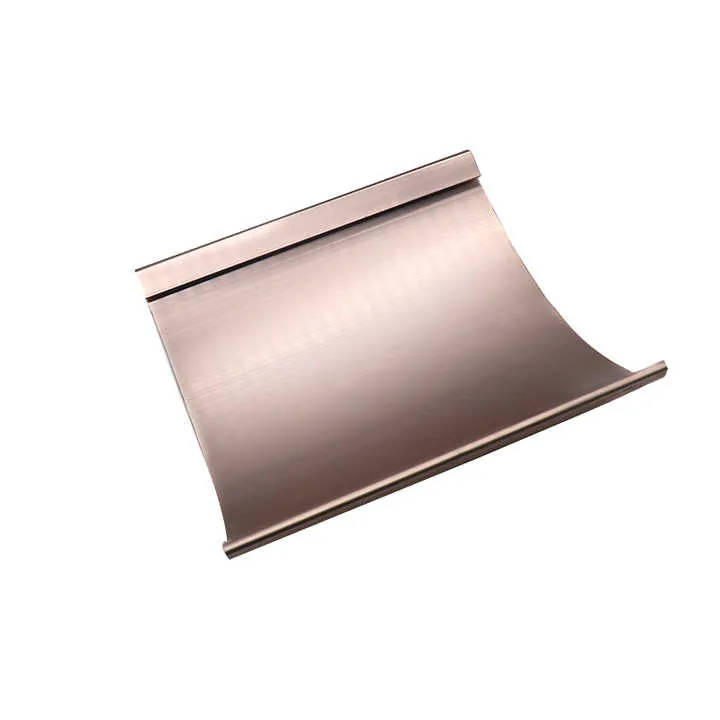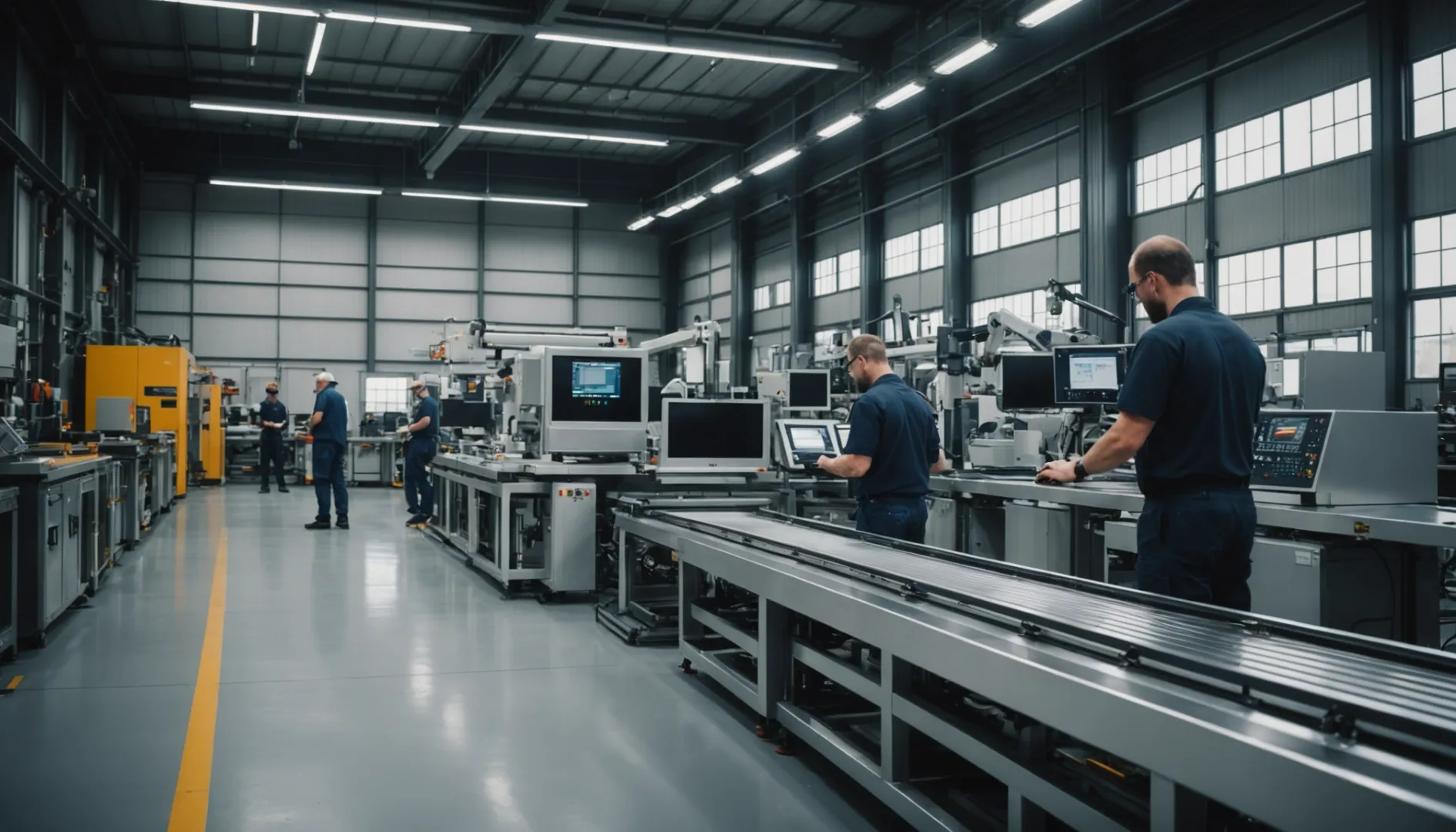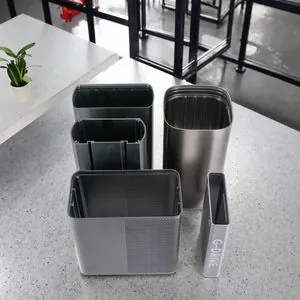CNC Machining Jordan: Manufacturers & Industry Guide

Part 1: Market Size and Growth
CNC machining in Jordan is growing gradually as the country strengthens its manufacturing base. Jordan’s geographic position in the Middle East, political stability, and skilled workforce give it an advantage as a regional industrial hub. While the domestic market is still small, industrial automation and mechanical engineering sectors are expanding, bringing new opportunities for machining companies.
In recent years, local firms have begun investing in CNC milling, turning, and precision tooling to serve customers in energy, automotive, and defense. This progress is supported by regional partnerships and trade with Gulf countries. Although energy costs and equipment imports remain a challenge, Jordan’s machining sector shows resilience and innovation, especially in custom, small-batch, and high-precision manufacturing.
If infrastructure continues to improve, and if companies secure international certifications, the Jordanian CNC industry could evolve from a supporting role into a recognized precision manufacturing node within the Middle East supply chain.

Part 2: Leading Companies
Jordan Advanced Machining Company (JordanAMCO)
Contact Now
JordanAMCO is one of the best-known precision machining companies in Jordan.

Overview: Founded in 2006, JordanAMCO operates as a national center for high-precision machining and manufacturing. It aims to support industrial modernization and export development.
Products and Services: The company provides CNC milling, turning, boring, grinding, heat treatment, and CMM inspection. It can machine steel, aluminum, titanium, and alloys with a tolerance of ±0.008 mm.
Main Industries: Energy, automotive, defense, aerospace, and heavy machinery.
Technical Highlights / Innovation: JordanAMCO integrates CAD/CAM software, process automation, and in-house training programs for CNC programming and measurement.
Certifications: ISO certifications are not specified publicly, but the facility follows international precision and quality control standards.
Al-Yaman Metal Machining
Contact Now
Al-Yaman is a smaller but technically advanced machining company operating in Jordan.

Overview: Originally established in Syria and relocated to Jordan in 2013, Al-Yaman provides flexible CNC machining and prototyping services.
Products and Services: Equipped with 4-axis mills, 7-axis Swiss lathes, and 4-axis EDM machines, it offers precision part production and custom tooling.
Main Industries: Medical devices, petroleum, automation, and signage manufacturing.
Technical Highlights / Innovation: The company focuses on complex geometries and tight-tolerance parts using high-end metrology systems.
Certifications: No major global certification listed, but its equipment and experience enable reliable, repeatable results.
Jordan Manufacturing and Services Solutions (JMSS)
Contact Now
JMSS is part of Jordan’s defense and heavy industrial manufacturing sector.

Overview: JMSS provides CNC cutting, fabrication, and assembly solutions. It is affiliated with national defense industries and supports large-scale projects.
Products and Services: CNC laser cutting, waterjet cutting, bending, forming, and component integration for various materials such as steel, aluminum, and composite sheets.
Main Industries: Defense, heavy machinery, and infrastructure.
Technical Highlights / Innovation: JMSS has the capacity to handle large and thick parts, integrating multiple machining and fabrication processes within one facility.
Certifications: No public ISO data, but internal defense standards ensure quality and precision.
Jordan Automation (JOCAM)
Contact Now
Jordan Automation specializes in CNC routing, plasma, and laser machinery distribution and service.

Overview: Established in 2006, JOCAM supports Jordanian manufacturers with automation and cutting equipment. It also provides basic CNC machining and cutting services.
Products and Services: The company supplies CNC routers, fiber lasers, plasma machines, and 3D printers. It offers custom cutting and post-processing for light industrial projects.
Main Industries: Metal fabrication, woodworking, signage, and advertising.
Technical Highlights / Innovation: JOCAM’s main strength lies in system integration and after-sales support. Its multi-machine setups allow large-format cutting and engraving.
Certifications: Not publicly stated, but the company maintains a strong reputation for equipment support and customer service.
Several smaller workshops in Amman and Irbid also provide CNC milling and repair services. These small firms form the backbone of Jordan’s machining ecosystem and supply local industries with spare parts and short-run components.
| Company | Founded | Core Products | Industries | Certifications |
|---|---|---|---|---|
| JordanAMCO | 2006 | CNC milling, turning, grinding | Energy, Defense | Internal QC / Training |
| Al-Yaman Metal Machining | 2013 | Complex parts, Swiss turning, EDM | Medical, Oil, Automation | — |
| JMSS | — | Laser, waterjet, metal forming | Defense, Heavy Industry | — |
| Jordan Automation (JOCAM) | 2006 | CNC routers, lasers | Advertising, Light Industry | — |
| Small Workshops | — | CNC repairs, parts, prototypes | General Manufacturing | — |
Part 3: Trade Shows and Industry Events
Middle East Manufacturing & Metalworking Exhibitions
These events connect Jordanian manufacturers with suppliers from across the region.

Overview: Focused on metalworking, fabrication, automation, and machining technology. Participants include machine tool manufacturers, distributors, and subcontractors.
Date / Location / Participation: Typically held annually in Dubai or Riyadh. Jordanian companies attend to network, learn about new tools, and explore export opportunities.
Highlights: Machine demonstrations, robotics integration showcases, B2B meetings, and industry seminars create valuable learning and business exposure.
EMO / Hannover Messe / EuroBlech
Jordanian engineers and industrial leaders regularly visit top European trade shows.

Overview: These major global exhibitions feature CNC systems, automation solutions, and industrial innovation.
Date / Location / Participation: EMO occurs every two years in Germany or Italy, while Hannover Messe runs annually in Germany. Jordanian delegations attend to acquire new equipment and foster partnerships.
Highlights: Global technology trends, smart factory showcases, precision tool innovations, and networking with suppliers and OEMs.
| Event | Date | Location | Highlights |
|---|---|---|---|
| Middle East Manufacturing & Metalworking | Annual | UAE / Saudi Arabia | CNC, automation, and metal fabrication |
| EMO / Hannover Messe / EuroBlech | Biennial / Annual | Germany / Europe | Global machine tools, Industry 4.0, robotics |
Part 4: Impact of Global Trade Policies
CNC machining in Jordan is directly influenced by trade agreements, energy costs, and import dependencies.

Tariffs and Imports: Importing advanced machinery or tooling can be expensive due to customs and currency fluctuation. Exporting parts to Europe or North America requires compliance with strict technical standards.
Supply Chain Risks: Most raw materials, such as steel and alloys, are imported. Global disruptions, shipping delays, and regional conflicts can affect supply and pricing. To manage this, firms diversify sourcing and maintain minimal but flexible inventories.
Energy Stability: Unstable electricity affects machining precision and productivity. Many workshops use generators or backup systems to sustain operations, increasing production costs.
Regional Competition: Turkey, Egypt, and Gulf states have stronger industrial bases and lower costs. Jordanian firms compete by focusing on quality, precision, and rapid turnaround instead of price.
Certification and Standards: Accessing export markets requires ISO and CE certifications. Local firms often partner with foreign institutions to upgrade quality management systems and meet international expectations.
Partnership Opportunities: Collaboration with European or Gulf-based equipment suppliers can bring training, financing, and technology transfer. Government-supported industrial clusters and vocational programs could strengthen these connections further.
Part 5: Conclusion
From my perspective, Jordan’s CNC machining industry is small but strategically positioned for growth. Its strengths lie in technical talent, stability, and geographic access to multiple regional markets. If Jordan continues investing in industrial zones, training centers, and energy stability, the CNC sector could develop into a sustainable precision manufacturing ecosystem.
Still, challenges remain. High import costs, certification barriers, infrastructure limitations, and competitive pressure can hinder progress. To overcome these, Jordanian firms must keep modernizing equipment, improving process control, and building regional partnerships. With steady policy support and targeted investment, CNC machining in Jordan can transform from niche workshops into a recognized contributor to Middle Eastern industry.
Recommended Reading:
What is your standard packaging method for heat sinks?
Are Your Heat Sink Materials RoHS and REACH Certified?
Do Our Heat Sinks Meet CE Requirements for Export to the EU?
CNC Machining Lithuania
CNC Machining Macedonia
CNC Machining Latvia
CNC Machining Estonia
CNC Machining Lebanon
What affects the cost of custom aluminium profile moulds
Oval Aluminum Extrusion
80 x 40 Aluminium Extrusion Workshop Pipeline
Round Aluminum Extrusion Profiles



